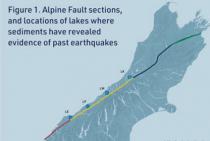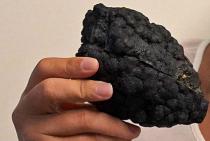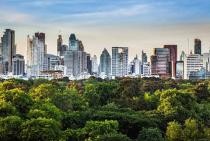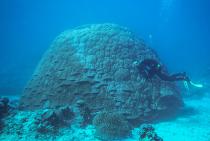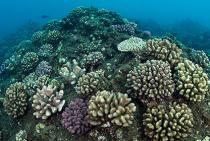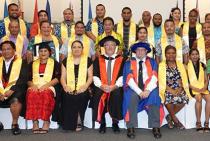Tonga is providing further input over a five-day workshop to help develop the regional 2050 strategy for the Blue Pacific Continent, which aims to ensure Pacific people will lead free, healthy and productive lives. A session on Oceans and Natural Environment was held today 25 May, with representatives from other Pacific countries joining in virtually.
You are here
Results for environment
Tuesday 25 May 2021
 Premium content
Premium content
Nuku'alofa, Tonga
Tuesday 20 April 2021
 Premium content
Premium content
Wellington, New Zealand
New research reveals the chances of the New Zealand South Island’s Alpine Fault generating a damaging earthquake in the next 50 years are much higher than previously thought. The probability of that earthquake occurring before 2068 is about 75 percent, says Dr Jamie Howarth of the Te Herenga Waka—Victoria University of Wellington today in a published study.
Thursday 8 April 2021
 Premium content
Premium content
New York, USA
New York Times reporting: For most scuba divers, few places underwater match the visual thrill of a kaleidoscopic coral reef teeming with colorful fish. For Jeff Milisen, a marine biologist and photographer in Kona, Hawaii, there is no better place to dive than an open stretch of deep ocean. At night. “There’s a whole lot of nothing,” he said. “There’s no bottom, no walls, just this space that goes to infinity. And one thing you realize is there are a lot of sea monsters there, but they’re tiny.”
Friday 12 March 2021
Nuku'alofa,Tonga
In the Pacific Islands, evidence of climate change is all around us, but when dozens of images showing its impact across the Pacific come together in one room, it is sobering and challenging to the viewer. Photographs submitted by amateur photographers of all ages capture the immediacy of of the harmful effects of climate change, in a competition organised by the UK Government, on display in Nuku'alofa.
Monday 1 March 2021
Nuku'alofa, Tonga
The debate over whether or not to turn to the deep sea to secure the resources we need for a low-carbon future has generated much public interest, but it is critical that this debate is founded upon sound science and the best data currently available. As such, I would like to correct a number of misrepresentations in the letter of Feb. 25 from the Civil Society Forum of Tonga. - Christina Pome'e, Tonga Offshore Mining Ltd.
Thursday 25 February 2021
1 comment
Nuku'alofa, Tonga
Deep Sea Mining (DSM) of polymetallic nodules in the Pacific Ocean is not essential for a renewables revolution. There would be massive amounts of waste produced and discharged to the ocean. The discharge plumes may also be quite toxic, with metals and processing agents. As Pacific Islanders already know - what happens in the deep doesn't stay in the deep. - Pelenatita Kara, Civil Society Forum of Tonga.
Tuesday 23 February 2021
 Premium content
Premium content
Christchurch, New Zealand
New York Times reporting: First the houses and cars vanished. Fences, driveways and the other remaining markers of suburban life followed. Now, only stretches of green remain — an eerie memorial to two earthquakes that leveled Christchurch, New Zealand’s second-largest city, 10 years ago. The undulating expanse, which begins 2 miles from downtown Christchurch, was deemed uninhabitable after the quakes, the second of which killed 185 people on Feb. 22, 2011. The 8,000 properties it encompassed were bought by the government and razed, the remnants swept away.
Friday 29 January 2021
 Premium content
Premium content
Tonga's Cabinet on 20 January 2021 approved a zero rate of Consumption Tax for the services of collection and disposal waste by a government approved waste management entity, the Waste Authority Ltd. However, the savings will not be passed onto the public.
Wednesday 27 January 2021
 Premium content
Premium content
Nuku'alofa, Tonga
An important mangrove area at the mouth of Tongatapu’s Fanga'uta Lagoon that was destroyed in 2017 to make way for a golf course project in Popua, is slowly being restored by the Department of Environment. “It’s a huge job to restore this area,” said team leader, Hoifua Aholahi, who urges the public not to destroy the nurseries at the site.
Monday 14 December 2020
 Premium content
Premium content
Bangkok, Thailand
The environmental roots of the COVID-19 pandemic need to be addressed to further protect people's health and the planet, the sixth session of the Committee on Environment and Development (UN-ESCAP) decided, because the destruction of the living world undermines our only support system and makes pandemics more likely.
Thursday 29 October 2020
Apria, Samoa
For the first time the 2020 Pacific Ocean, Pacific Climate Change Conference underway this week is being held as a virtual conference. Another large virtual event - the Pacific Islands Nature Conference will be held in November, attracting hundreds of virtual participants, reports SPREP. Pacific Islands Forum Leaders also will soon meet virtually to discuss regional priorities, the highest of which are COVID-19, climate change, and oceans.
Tuesday 20 October 2020
 Premium content
Premium content
Nuku'alofa, Tonga
Tongatapu 5 Youth Council want to tackle water and coastal issues to ensure a better future for Hihifo communities, after electing a working committee last week. They have support from the Tonga IW Ridge to Reef (R2R) project and local MP.
Tuesday 20 October 2020
 Premium content
Premium content
Vallejo-California, USA
New York Times: As oceans warm, algae blooms have become more widespread, creating toxins that get ingested by sardines and anchovies, which in turn get ingested by sea lions, causing damage to the brain that results in epilepsy. Sea otters also face risk when they consume toxin-laden shellfish. Early this month, Cronutt a 7-year-old Pacific sea lion underwent groundbreaking brain surgery aimed at reversing the epilepsy. By Matt Richtel.
Friday 16 October 2020
 Premium content
Premium content
-
New York Times: The Great Barrier Reef, one of the Earth’s most precious habitats, lost half of its coral populations in the last quarter-century, a decline that researchers in Australia said would continue unless drastic action is taken to mitigate the effects of climate change. By Maria Cramer.
Friday 5 June 2020
 Premium content
Premium content
Apia, Samoa
As the Pacific Islands consider ways to build back economies severely struck by the CoViD-19 crisis, the environmental impacts faced worldwide highlight the opportunity we now have in our hands to build back a ‘Bluer Pacific’, said Kosi Latu, Director General of the Secretariat of the Pacific Regional Environment Programme (SPREP) on World Environment Day.
Friday 15 May 2020
 Premium content
Premium content
Nuku'alofa, Tonga
No-fishing areas established around Tonga are showing they are helping coral reef ecosystems to recover, says the Special Management Area Report 2020, compiled by the Ministry of Fisheries in partnership with Australia's James Cook University recently. Damaged reefs might take 20 years for full recovery.
Tuesday 3 March 2020
Princeton, USA
The apocalyptic images of the locked-down Chinese city of Wuhan have reached us all. The world is holding its breath over the spread of the new coronavirus, COVID-19, and governments are taking or preparing drastic measures that will necessarily sacrifice individual rights and freedoms for the general good. ...But few mention, let alone confront, the underlying cause of the epidemic. - Peter Singer.
Monday 9 December 2019
Nuku'alofa, Tonga
A population of coral reefs is making a remarkable recovery around the newest island on Earth, Hunga Tonga – Hunga Ha’apai (HTHH), after it was formed during a volcanic eruption in 2015. A new crater connects the neighbouring islands of Hunga Tonga and Hunga Ha’apai.
Monday 5 August 2019
 Premium content
Premium content
Nadi, Fiji
More than 30 Pacific Island environmental practitioners and government officials, from 14 countries, including Tonga, will contribute more to protect biodiversity and ecosystems in their countries after receiving post graduate certificates in Ridge to Reef Sustainable Development from James Cook University, on 1 August, in Nadi, Fiji.
Tuesday 25 June 2019
Potsdam, Germany
The leaders of the G20 countries head to Osaka this week for their annual summit. United Nations Secretary-General António Guterres will address them before traveling to Abu Dhabi to finalize the arrangements for September’s UN Climate Action Summit. These meetings should set the world on course for the fastest economic transition in history. Yet both are likely to deliver incremental action, at best. By Johan Rockström



